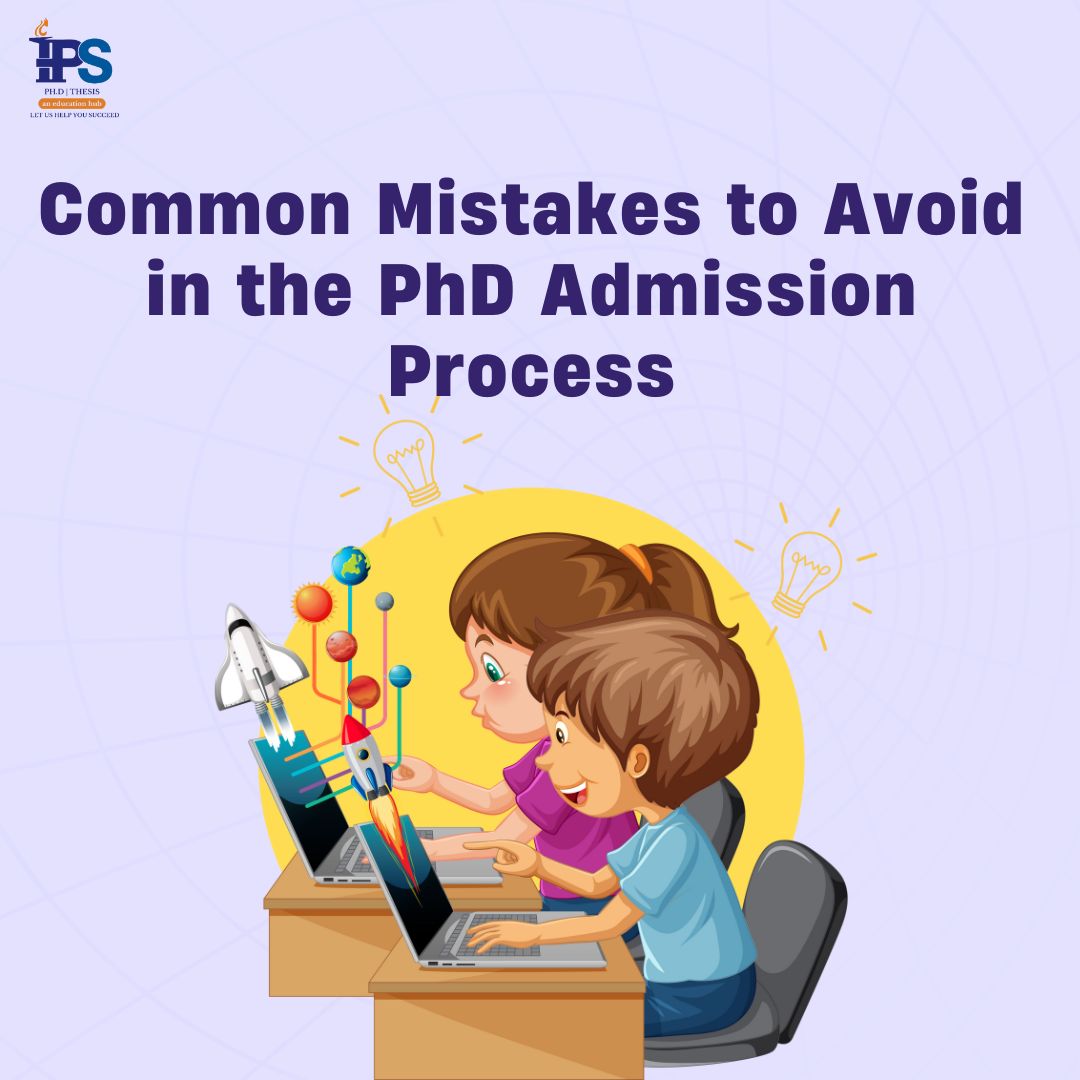
Common Mistakes to Avoid in the PhD Admission Process
The PhD admission process is a cumbersome process to deal with for many. Common mistakes are made by many applicants that can lead to rejection or needless delay. Knowing these application mistakes will help you navigate your application journey smoothly. University process of PhD admission, Benefits of Reading Articles for Common PhD Admission Mistakes to Avoid, along with Common Mistakes to Avoid in the PhD Admission Process.
1. Lack of Proper Research on the University and the Program
The most common mistake the applicants make is not analysing the university and PhD programme thoroughly. Every university has different admission criteria, areas of research, and faculty expertise. Applying to a program that does not suit your research interests can leave you feeling rejected or unhappy down the line.
Tip: This helped me clarify what I really wanted to pursue, and it ensured that, before applying, I was able to check the university’s website, the professors’ profiles, the areas they are conducting research, and their admission criteria, and confirm that the university fits my academic goals.
2. Weak Research Proposal
The second most important aspect of your application is your research proposal, which outlines the research you intend to pursue and the methods you plan to use. They may submit proposals that are badly written or too vague or don’t even address the topics being offered, and they get rejected.
Tip: Write a clear, well-structured research proposal that aligns with the university's research focus and demonstrates the feasibility of your study.
3. Ignoring Eligibility Criteria
PhD admission requirements for each university in India differ and include educational qualifications, entrance exams, and experience. Because of this, some applicants apply even when they do not meet these criteria and are subsequently rejected.
Tip: Read the eligibility requirements closely and make sure you meet all the conditions before applying.
4. Poor Statement of Purpose (SOP)
A statement of purpose for a PhD application is a vital component of the process. Many potential students struggle to understand what they need to write in the SOP.
Tip: Write an SOP in a way that shows your interest in research, a suitable academic background, and other good reasons to be the perfect fit for the program.
5. Missing Important Deadlines
Most PhD candidates lose opportunities because they forget or neglect admission deadlines. Prompt Admission Process: Each university has its own deadlines regarding application submission, entry exam dates and document submission.
Tip: Make a timeline of your application process and set a calendar reminder for each stage to avoid missing important dates.
6. If You Don’t Have Strong Letters of Recommendation
Now we will talk about letters of recommendation, which are a crucial part of PhD admissions. It is not uncommon for applicants to submit recommendations from professors who are unfamiliar with their academic work, so the recommendations may be weak.
Tip: Ask professors or mentors who can speak to your research skills and who can write an enthusiastic recommendation.
7. Low Performance in Entrance Exams and Interviews
Most universities in India conduct entrance exams like UGC-NET or CSIR-NET or conduct their own exams. A few applicants do not prepare well, which results in poor performance. Likewise, a poor interview can negatively impact your admissions outcome.
Tip: Entrance Tests Consult past papers and important topics. When it comes to interviews, you should familiarise yourself with standard PhD interview questions and prepare responses for each, as well as for your research proposal.
8. If You Submit Missing or Wrong Documents
The most common mistake in the PhD admission process is submitting incomplete or incorrect documents. Transcripts or certificates that are missing, wrong, or filled incorrectly may cause delays or rejection.
Tip: Be sure to recheck every document before submission. Check that they are formatted correctly and comply with the university’s instructions.
9. Neglecting Financial Planning
It´s clear that many candidates overlook the financial investment that a PhD requires, including the tuition cost, research expenses and funding opportunities. This can lead to financial strain down the line.
Tip: Apply for scholarships, fellowships, and financial aid before applying. Plan your budget accordingly.
10. Not Having a Defined Career Plan Before Applying
When the applicant applies for a PhD program without thinking about how it fits into their long-term career pathway. Running general programs, however, is no roadmap, and most PhD students end up failing to finish or finding a suitable occupation later.
Tip: Before you begin the application process, define your career goals and how a PhD will help you on your path.
Conclusion:
PhD admission is highly competitive, and by avoiding these common mistakes, you are one step closer to success. By placing adequate research effort, preparing with a strong document flow at hand, adhering to application deadlines, and managing your finances wisely can enable a seamless admission journey. IPS Edu Hub is one of the professional PhD admission support services that can assist you in securing a place in your desired program if you feel to do so.





